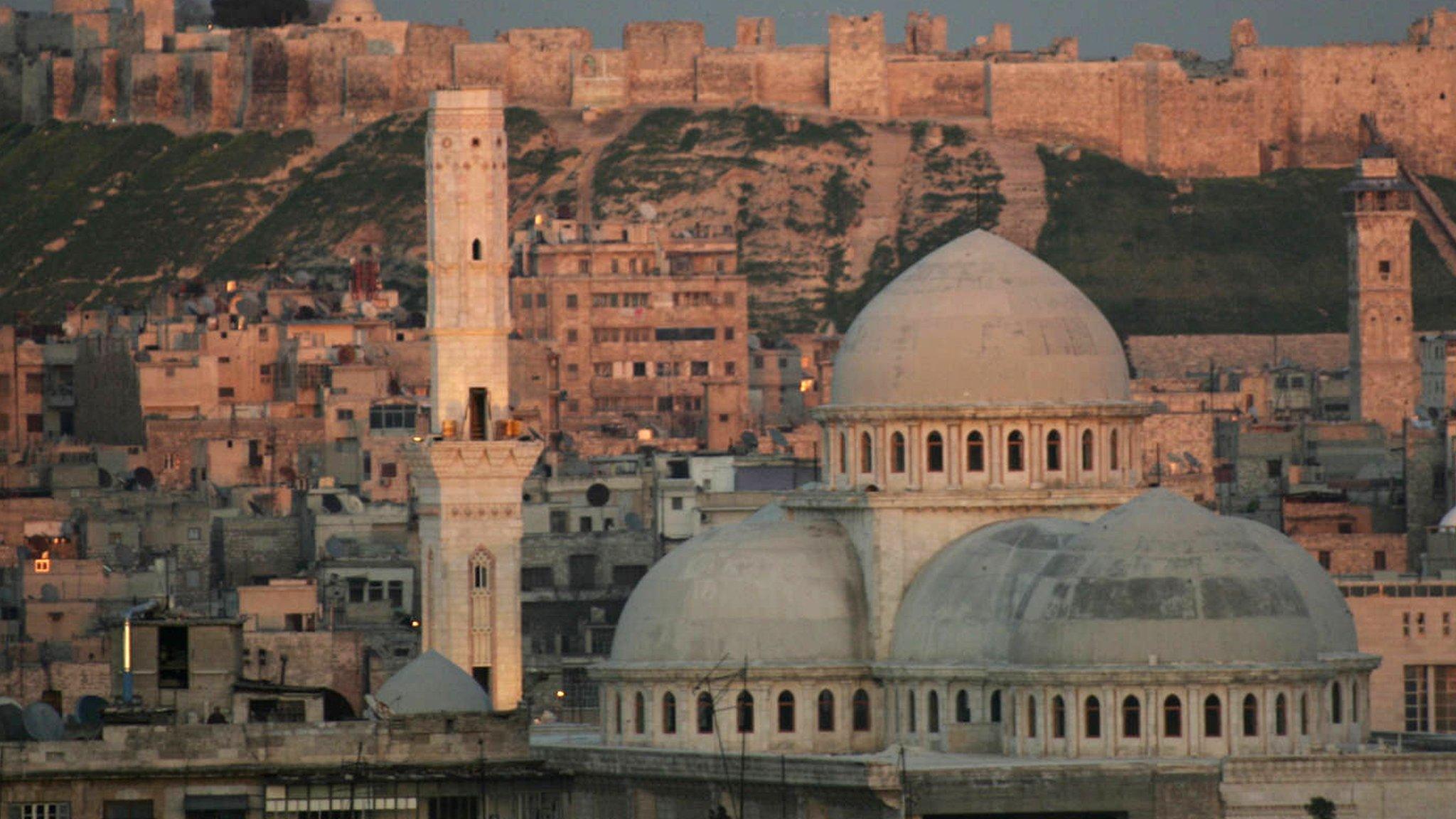'Why we drove 3,000 miles to risk our lives in Aleppo'
- Published
The long and dangerous journey from Manchester to Syria by road
Aid organisations say that parts of Syria are now so dangerous that civilians are being left without help. Despite those dangers, small British convoys are making the journey overland to the country to deliver aid.
"Some people say you can only pray for them. What they don't realise is they can make a difference. We need to actually get up and do something - we can fund-raise, we can send medical aid."
Majid Freeman, 25, a credit adviser from Leicester, travelled with an aid convoy that recently drove five ambulances the 3,200 miles from Manchester through France, Belgium, Germany, Switzerland, Luxembourg, Italy, Greece and Turkey into Syria.
Taking it in turns to drive, and sleeping among the boxes of medical supplies, baby milk and dried food in the backs of the ambulances at service station car parks, the 14 British Muslims who made the trip included a doctor from Manchester, a pharmacist from Halifax and a restaurant owner from Batley, in West Yorkshire.
Four of the 14 made it to Aleppo, in the north of the country, to deliver aid to hospitals they say had received no supplies for weeks. They all put their lives in grave danger but say that if they had died in Syria, it would have been pre-determined, beyond their control.
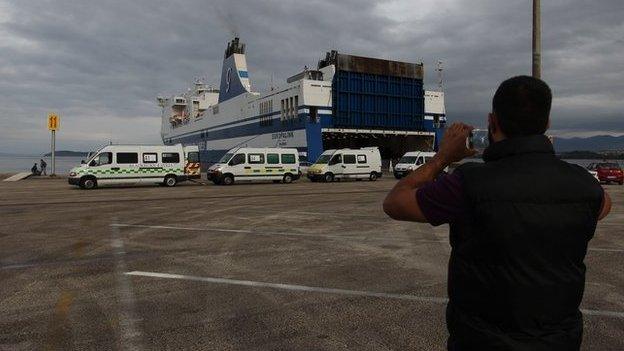
The aid convoy arrives in Greece.
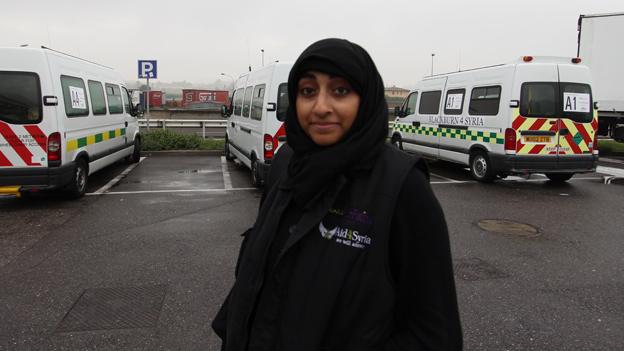
Dr Shameela Islam-Zulfiqar, who left her four children behind in Manchester to join the convoy
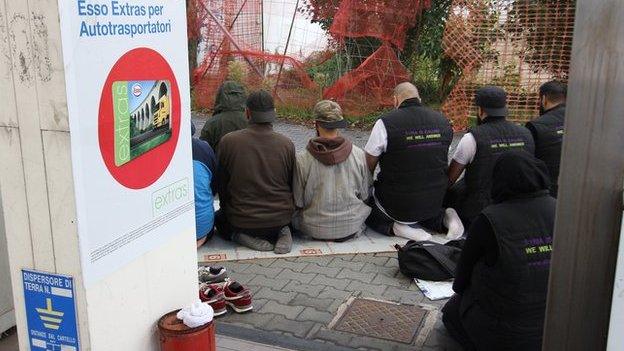
Stopping off for prayers at a motorway service station.
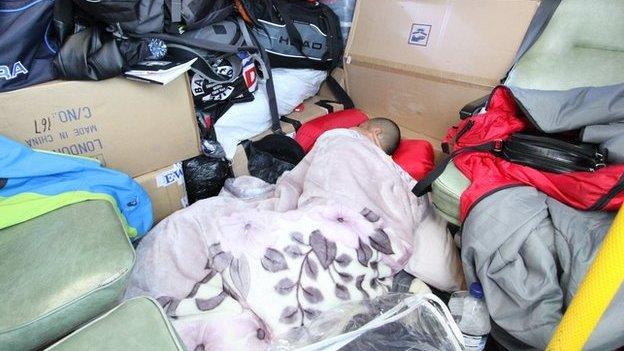
Cramped sleeping conditions inside one of the ambulances en route.
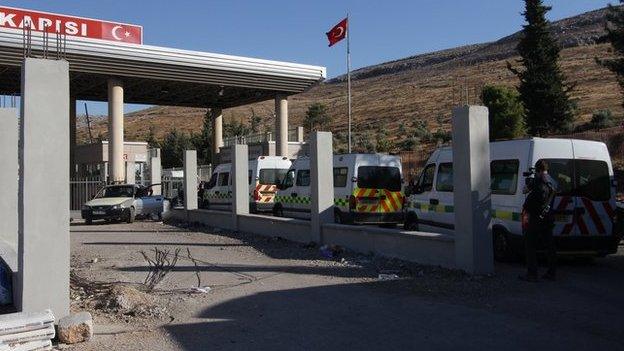
Arriving at the Syrian border.
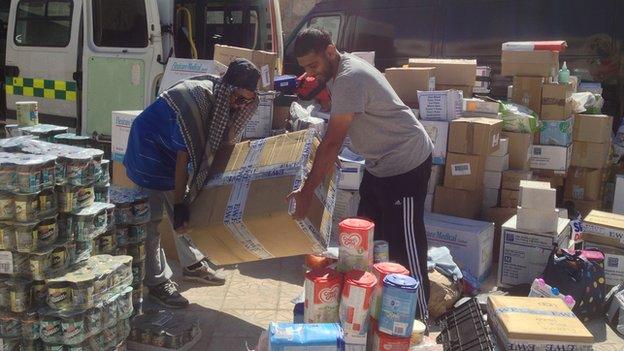
Unloading the ambulances' cargo of food and medical aid.
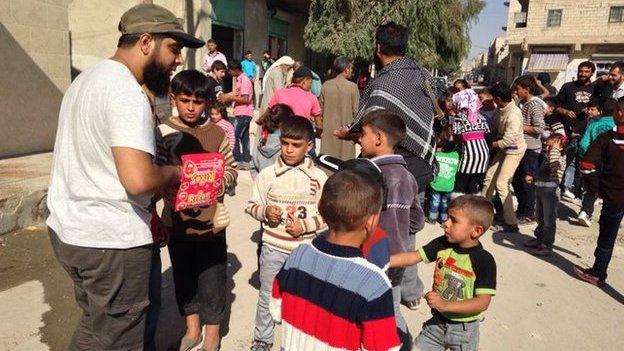
Handing out sweets to Syrian children.
Majid describes the sound of bombs continually dropping outside the hospital where they stayed - something he says you actually get used to very quickly. The same cannot be said for the sight of the bodies coming in.
"There wasn't time to be scared. You have to try and control your emotions. I'm still a human being though, it's not easy."
To deliver aid from hospital to hospital, the group tore through the streets with a local driver, travelling at high speed to avoid the snipers who line Aleppo's streets.
Dr Shameela Islam-Zulfiqar, who left her four children behind in Manchester to join the convoy, says the danger they were in often only became apparent with hindsight.
"We ended up not far from some of the front lines where snipers were sat. It was a little closer than I would have liked to be, but at the time survival instincts get you through the situation," she says.
"We managed to deliver the aid to the hospitals, which were receiving a lot of casualties from the front line, so for me it was a mission accomplished."
Aid agencies say that the Syrian government has hindered access to visas and tried to limit the number of foreign groups operating in the country.
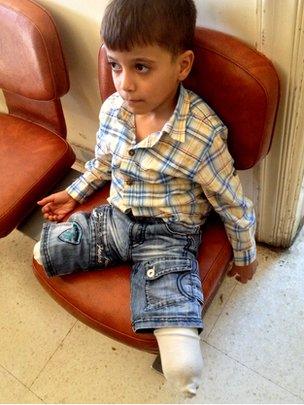
Seven-year-old Muhammad had his legs blown off and lost both his mother and brother in the civil war
According to Human Rights Watch, whose representatives have recently been in the country in opposition areas, aid - particularly medical aid - is blocked as much as possible.
This group of aid workers filmed their own footage to try to encourage people back at home to donate.
"You want the world to see what is going on, but, at the same time, out of respect, it just doesn't feel right pulling out your phone and recording people," Majid says.
"People shot in the head, some just missing their heart, people just about surviving."
Majid points at a picture of a seven-year-old, Muhammad, sitting in a chair - what remains of his legs in bandages.
"A regime tank went into his house. His mum passed away, his brother passed away. He had both his legs blown off. But he survived and his father survived. He lives in the hospital now - his new family are all the doctors."
The members of the convoy were just four ordinary people who chose to risk being killed to go to places others would not in order to deliver aid.
"When I left my house in the UK, when I said goodbye to my mum, obviously I was emotional and upset, because you never know what's going to happen when you go to Syria. It just seems to be getting worse and worse," Majid tells me.
"But when I left Syria I found it more difficult than when I left home. Because I lived with these people, and they were my brothers and sisters, and I almost felt like a traitor for leaving them. We have to help them."
Listen to Catrin Nye's documentary - A Road Trip to War - on the BBC Asian Network website and see the Newsnight film in full on the BBC iPlayer.
- Published28 November 2016
